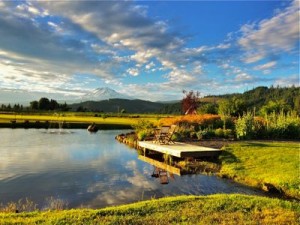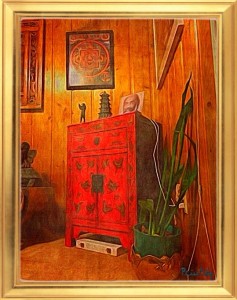Managing Your Energy Part 42: Open Book Contemplation—A Comfort or a Horror?

Decades ago I worked with a spiritual teacher who read whatever I was thinking. He would give me practices to do, and leave the building. When he came back he would yell a me for something I was thinking half an hour after he left. For a few months I was on silence, or just “yes” and “no.” I was not allowed to ask questions. Every number of days, however, this teacher would sit me down and answer the questions that had built up in my mind. He answered them one after another, almost verbatim to the way I thought them.
This experience would be wonderful for everyone ready for it to have, say, for a good solid three days, at least once in their lives.
We carry on AS IF we can have castle walls and partitions. We partition off parts of ourselves and things we don’t want to know about or be in touch with; parts that we can’t have in the same room at the same time. Then we pretend that just because we ourselves are out of touch with a particular part, that other people cannot see it either. This is one of our various conceits. We try to look certain ways and imagine all the things we think we can get away with.
 Our personality defenses are like a series of castle walls and partitioned rooms. Having someone view the contents of our minds, objectively and without partitions, is like helicopter-view access. From the top, all these partitions, walls and defenses do not matter.
Our personality defenses are like a series of castle walls and partitioned rooms. Having someone view the contents of our minds, objectively and without partitions, is like helicopter-view access. From the top, all these partitions, walls and defenses do not matter.
The experience of being VIEWED like that is fascinating. After the first day or two of denial, testing, and so forth, comes the scrabbling terror, like a cat that seems to have twenty legs when a child tries to cram it into the toilet. The ego starts to freak out, thinking: No this person can’t possibly see in me what I refuse to see. Your defenses come up.
Suppose the person who sees you completely has no interest whatsoever in these defenses. They are unimportant. They are irrelevant. The person just carries on viewing you completely—and even has a sense of humor about it.
The horror of finding all of your conceits and defenses ineffectual finally begin to relax.
You then become able to realize a few things: You see how much time and energy and tension goes into maintaining these defenses. There is great freedom in this. You realize that your defenses stop self knowledge and growth from happening. You surmise that the person viewing you sees and has seen other humans before. S/he has seen minds and hearts much dirtier than your own. Maybe you’re not so bad.
The net result, to a rational person is: Maybe I can just accept myself as I am. Maybe I can relax and let these things BE here, because they ARE here. This other person sees them anyhow—maybe I can admit them.
Contemplating this experience, you can begin to imagine living without partitions, divides, and defenses; coming to peace with whatever is inside. You now have a real opportunity for sincerity and significant growth. After this experience you no longer assume that people CAN’T see inside your mind and heart. We never do know who can see, hear, and feel what is going on inside us. We transmit clues all day long.
Of our various conceits and illusions, not the least is that we have privacy of mind. As a society, we go along with this conceit, and protect one another within it. Graceful social buffering is often necessary, particularly with those who are not consciously on a path of growth.
I’ve been around quite a few people who routinely pick things out of my mind or read my atmosphere. If it used to make me uncomfortable, at this point I’m not sure I feel fully connected around people who do not.
For an advanced intuitive, it’s as if the contents of one’s mind are floating around in the room and they have to walk in it. It’s not as if they are going IN AFTER it, trying to FIND it, invading you. There is nothing to be huffy about.
You begin to realize when you are walking around that your mind is relatively accessible. Even if you think you are closing yourself off it does not necessarily stop someone noticing what you are thinking and feeling. This realization can change your relationship with people and with yourself. You have to relax with yourself or you will go nuts. You also have the opportunity to clean up the things that you are not happy about instead of thinking you can shove it in a corner. Moving through life with cleanliness of mind because you are not defending, protecting or denying anything is more joyful.
How do you react to being so open?
What does your reaction mean to you?




















